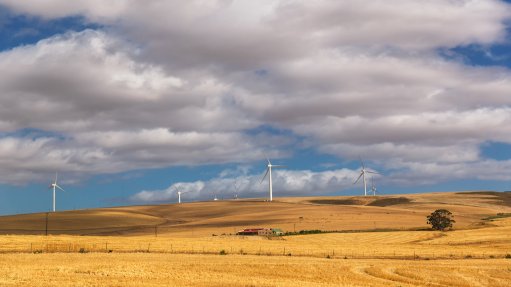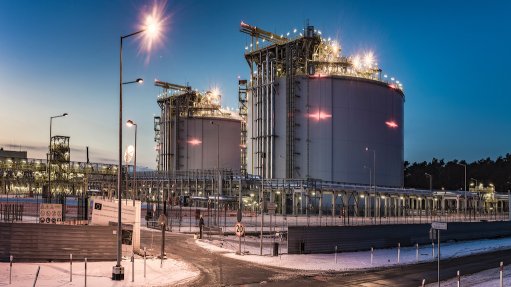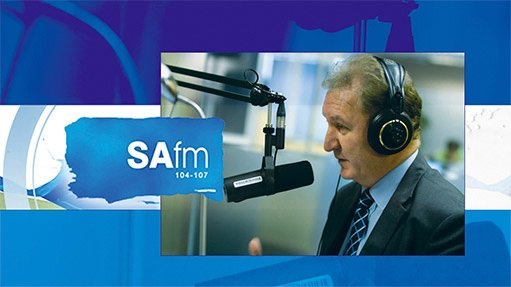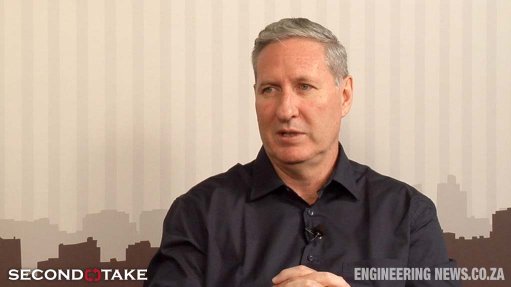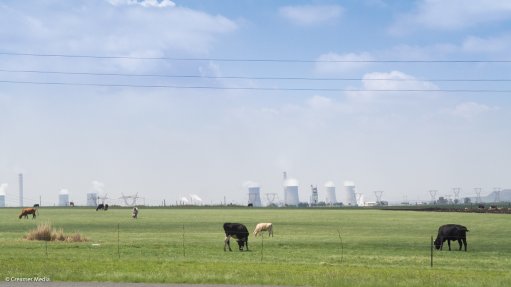South Africa is returning to prepandemic levels of economic growth
South Africa is returning to pre-Covid-19 levels of economic growth, according to the latest ‘KPMG Global Economic Outlook’ report.
The global economic research and consulting firm said on September 29 that South Africa remained in a unique position where many of its natural resource exports mirrored those of Russia – such as palladium and other platinum group metals, gold, iron-ore and coal, as well as many other industrial metals.
Consequently, the country has profited from the rise in commodity prices caused initially by Covid-19 and now the conflict in Ukraine. The result of the increase in commodity prices has been an improvement in South Africa’s terms of trade, which has led to surpluses on its current account since 2020.
KPMG said South Africa’s gross domestic product (GDP) is set to grow by about 1.8% this year, led by contributions from the finance, real estate and business services sector, growth in personal services as well as in mining, agriculture and trade, catering and accommodation.
The projected growth for this year, however, would be noticeably lower than that achieved in 2021. KPMG said it should be understood that much of that growth was owed to technical base effects following the sharp Covid-19 induced contraction experienced in 2020.
Meanwhile, growth in 2023 was estimated to decline further to 1.5%, with higher interest rates and lower global growth reducing aggregate demand locally.
In 2024, economic growth should converge back to the average pre-Covid-19 level of about 1.7%, as inflationary pressures abated and global growth rates improved.
Despite its growth, KPMG noted that South Africa still had to contend with inflationary implications that arose as a direct consequence of the Covid-19 pandemic and the Russian invasion of Ukraine.
Further, interest rates continue to rise and, and as with the rest of the world, growth prospects are being reduced accordingly.
Overall, the growing geopolitical uncertainty and inflationary pressures are set to take their toll on global economic growth projections, KPMG warned.
The company predicted a global GDP growth of 1.9% in 2023, down from 2.7% this year, as the world grapples with a multitude of economic and political challenges. Weaker growth could see inflation moderate to 4.7% in 2023 after averaging 7.6% this year.
The report warns that an acceleration in inflation is putting pressure on households’ finances and businesses’ margins, while leading central banks to tighten monetary policy aggressively, with recession once again on the horizon in many economies.
Rising costs are taking their toll on consumers, with a cost-of-living crisis putting a significant dent on households’ purchasing power. Consumer confidence has taken a big knock across most economies and spending is following suit, causing overall economic growth to weaken.
“The need for fiscal support is likely to stoke more inflation in the medium term, placing fiscal policy actions at odds with the aims of central banks in meeting their mandates,” KPMG chief economist Yael Selfin said.
He said the company’s latest forecast suggested that tightening monetary policy will moderate inflation, but inflationary pressures were likely to linger for longer, which is why central banks are likely to be more “hawkish” in their response to what could be a relatively short-lived burst in inflation.
”A very aggressive cycle of monetary tightening across the world could impose high costs for the global economy as it emerges from another synchronised shock. Other policy tools and further reforms to open up supply could be deployed to ease the burden on central banks,” he said.
ENERGY UNCERTAINTY
Although inflationary pressures were already present as economies reopened from Covid, the invasion of Ukraine by Russia added extra strain, with a range of commodities exported by the region seeing their price rise significantly, KPMG said.
More recently, some prices have moderated somewhat and supplies have adjusted while demand is easing as the economy slows.
Energy prices have been at the centre of the inflationary surge, although oil prices have moderated recently, which contributed to a minor ease in yearly inflation figures in many countries recently.
Nevertheless, KPMG said that the price of gas across many regions remains heavily impacted by the conflict in Ukraine, with the rush to secure shipments of liquefied natural gas (LNG) for winter causing not just European but also Asian gas prices to spike recently.
It is still uncertain whether sufficient gas supply will be forthcoming over the winter months. This could prove a significant blow to the short-term outlook of some European economies which are more reliant on Russian supply.
SUPPLY CHAIN AND LABOUR MARKET ISSUES
The combination of supply chain bottlenecks, generous government spending, tight labour markets and a commodity shock triggered by the Russian invasion of Ukraine, have together caused inflation to rise well above central banks’ target across many developed economies.
KPMG’s global economic outlook expects inflation to moderate significantly from the middle of next year, as the energy shock is no longer reflected in the year-on-year inflation calculation.
However, the world could be entering an environment that is structurally more inflationary, as production costs – from materials to energy and labor – remain elevated.
Faced with inflation well above target, an immediate concern for most central banks is that inflation expectations remain high, while their credibility in fighting inflation is lost. That is why central banks are likely to be more hawkish in their response to what could be a relatively short-lived burst in inflation, with markets pencilling in aggressive rate rises over the coming months, KMPG said.
Moreover, if inflationary pressures are to become embedded, interest rates may stay at higher levels than what was witnessed in the past decade – even after the current spike in inflation subsides. This would represent a significant shift in monetary policy in a relatively short space of time.
AN UNEVEN RECOVERY FROM COVID-19
With the easing of Covid-19 restrictions across the majority of the globe, there was cautious optimism of an international post-pandemic bounce, but KPMG’s analysis reveals economic recovery was uneven and relatively short-lived before new challenges, including supply chain issues and subsequently the war in Ukraine, began.
“It’s hard to downplay the scale of the geopolitical and economic uncertainty facing every one of us – from individual households to governments and business leaders. We entered the year with a degree of cautious optimism as Covid-19 restrictions were gradually eased, but what followed was a series of challenges that have tested the resilience of even the most robust, sustainable companies,” KPMG global clients and markets head Regina Mayor said.
KPMG noted that there were also fears of a potential spike in cases during the Northern Hemisphere’s winter months, which could see a return to some restrictions, causing more disruptions to production and economic output – particularly in China, which continues to implement a zero-Covid-19 policy.
A rise in cases could also see a tighter labour market and increased pressure on health services, as well as additional burden on public finances.
“The international outlook is patchy. Some countries, regions and territories achieved a strong post-pandemic rebound, for others – chronic political and economic challenges dampened hopes of regaining lost ground. It’s a similar story across all areas of analysis – with different outlooks and outcomes in different areas,” Mayor said.
She said, however, that there were a number of universally consistent themes and stories.
“The rapid return to economic activity after Covid-19 created supply chain challenges which appear to be easing slightly but continue to drag down growth projections. Combined with the devastating war in Ukraine, C-suites are grappling with shortages in everything from oil and gas to wheat and microchips. This has had a significant impact on both inflation and recessionary fears,” Mayor said.
KPMG’s global economic outlook provides bi-yearly economic forecasts, produced by macroeconomics teams across KPMG’s global network using a suite of external and in-house models capturing the main inter-relationships in the world economy.
Article Enquiry
Email Article
Save Article
Feedback
To advertise email advertising@creamermedia.co.za or click here
Comments
Press Office
Announcements
What's On
Subscribe to improve your user experience...
Option 1 (equivalent of R125 a month):
Receive a weekly copy of Creamer Media's Engineering News & Mining Weekly magazine
(print copy for those in South Africa and e-magazine for those outside of South Africa)
Receive daily email newsletters
Access to full search results
Access archive of magazine back copies
Access to Projects in Progress
Access to ONE Research Report of your choice in PDF format
Option 2 (equivalent of R375 a month):
All benefits from Option 1
PLUS
Access to Creamer Media's Research Channel Africa for ALL Research Reports, in PDF format, on various industrial and mining sectors
including Electricity; Water; Energy Transition; Hydrogen; Roads, Rail and Ports; Coal; Gold; Platinum; Battery Metals; etc.
Already a subscriber?
Forgotten your password?
Receive weekly copy of Creamer Media's Engineering News & Mining Weekly magazine (print copy for those in South Africa and e-magazine for those outside of South Africa)
➕
Recieve daily email newsletters
➕
Access to full search results
➕
Access archive of magazine back copies
➕
Access to Projects in Progress
➕
Access to ONE Research Report of your choice in PDF format
RESEARCH CHANNEL AFRICA
R4500 (equivalent of R375 a month)
SUBSCRIBEAll benefits from Option 1
➕
Access to Creamer Media's Research Channel Africa for ALL Research Reports on various industrial and mining sectors, in PDF format, including on:
Electricity
➕
Water
➕
Energy Transition
➕
Hydrogen
➕
Roads, Rail and Ports
➕
Coal
➕
Gold
➕
Platinum
➕
Battery Metals
➕
etc.
Receive all benefits from Option 1 or Option 2 delivered to numerous people at your company
➕
Multiple User names and Passwords for simultaneous log-ins
➕
Intranet integration access to all in your organisation






